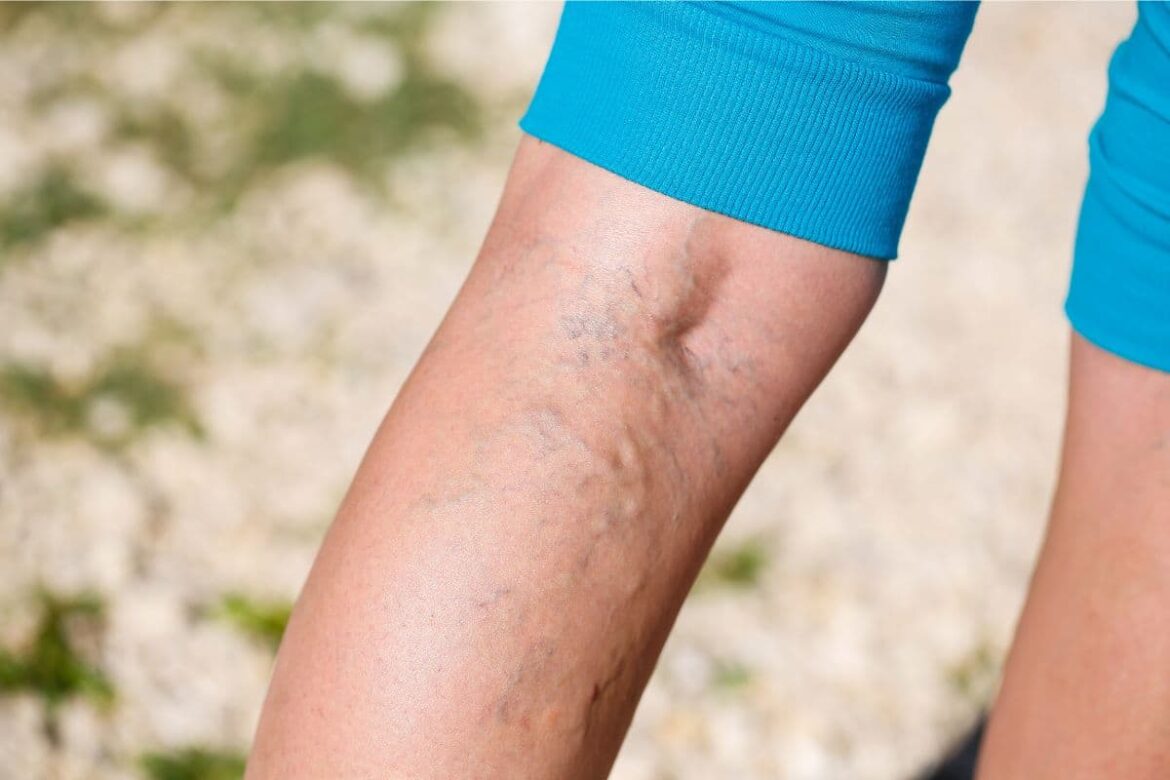Varicose veins, a common health concern affecting millions of individuals worldwide, are characterized by enlarged and twisted veins that often occur in the lower extremities.
The development of varicose veins can be attributed to various factors such as age, genetics, obesity, pregnancy, prolonged standing or sitting, and hormonal influences during menopause.
Although they may cause discomfort or pain for some people, varicose veins predominantly pose cosmetic concerns due to their unsightly appearance.
Typical Treatment Options for Varicose Veins
Treatment options for this condition range from conservative measures like compression stockings and lifestyle modifications to invasive procedures such as sclerotherapy and endovenous laser therapy.
Essential Oils as an Alternative Treatment for Varicose Veins
The use of essential oils has gained considerable attention in recent years as an alternative therapeutic approach for managing various health conditions including varicose veins.
Essential oils derived from plants have been found to contain numerous bioactive compounds with potential anti-inflammatory, analgesic, vasoconstrictive and venotonic properties that could alleviate symptoms associated with varicose veins.
This article aims to provide a comprehensive overview of essential oils for varicose veins while discussing their proposed mechanisms of action alongside evidence supporting their effectiveness in ameliorating this condition.
What Are Varicose Veins?
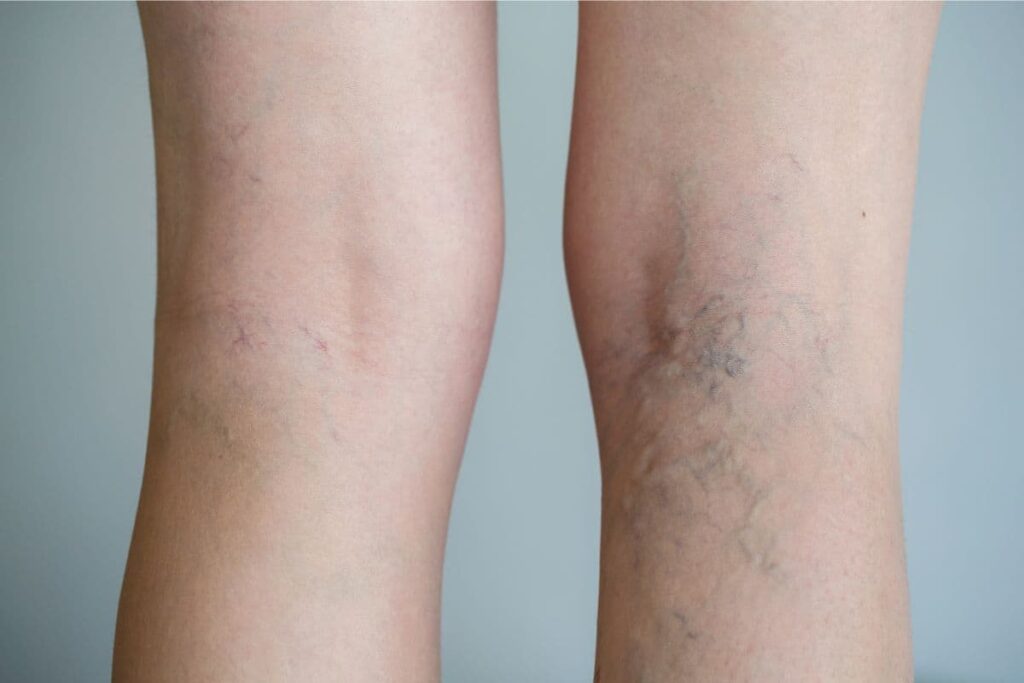
Just like tree branches spread out in different directions, our bodies have a complex network of veins that carry blood back to the heart. But some people might have weak veins and poor blood flow, causing their veins to become unusually large or twisted. This is called varicose veins.
These swollen veins not only change how a person looks but can also cause pain and health problems if not treated. Varicose veins usually look like blue-purple or red lines under the skin and mainly affect the legs and feet.
The main job of these veins is to carry blood without oxygen from body tissues back to the heart so it can get more oxygen. When working well, these veins keep blood flowing in one direction because of helpful valves in their walls, which stop blood from going backward because of gravity.
But when the veins’ walls are weak or the valves don’t work right, this balance is messed up, causing blood to collect in those areas. This leads to the bulging and stretching that we see in varicose veins.
What Causes Varicose Veins
Varicose veins happen when blood vessels that carry blood without oxygen back to the heart become weak or damaged. This can be caused by things like getting older, being overweight, being pregnant, or standing for a long time.
The main reason for varicose veins is when the valves inside the veins don’t work well. These valves are like one-way doors that let blood go toward the heart but not back. If they’re weak or broken, they might not close right, which makes blood collect and go backward in the veins. This puts more pressure on the vein walls, causing the swollen and twisted veins we can see under the skin.
Some things make people more likely to get varicose veins. For example, as we get older, the valves in our veins can get weaker. But other things, like not moving enough or jobs that need a lot of standing, can also put more stress on the veins in our legs.
How Essential Oils Can Help With Varicose Veins
Essential oils can provide alternative treatments for various ailments, including varicose veins. These natural plant extracts have been used in traditional medicine for their anti-inflammatory, analgesic, and circulatory effects. They hold potential as complementary or alternative treatments for individuals with this common venous disorder.
Research has shown that essential oils have many benefits for treating varicose veins. Some oils can improve blood circulation and reduce vein inflammation due to their vasoconstrictive properties. Essential oils can also relieve pain associated with swollen or twisted veins because of their analgesic effects. Moreover, certain phytochemical components found in these oils can strengthen vascular walls by promoting collagen synthesis and reducing capillary permeability.
Using essential oils in daily routines may lead towards positive results in managing varicose vein symptoms over time. By consistently using specific oils alongside massages targeting the affected areas, individuals may witness reduced swelling, improved circulation, and an overall increased sense of well-being.
Best Essential Oils For Varicose Veins
Several essential oils have been suggested as possibly helpful for relieving varicose vein symptoms. These natural remedies could potentially decrease pain, inflammation, and swelling in affected regions. Some essential oils are more effective than others due to their unique properties that address varicose vein-related problems. Here are some popular oils you can try to help you with varicose veins.
1. Sea Pine Oil
Sea pine oil, derived from the maritime pine tree (Pinus pinaster), is another essential oil that has gained attention for its potential benefits in managing varicose veins.
This particular essential oil contains a variety of bioactive compounds such as terpenoids and flavonoids that possess antioxidant, anti-inflammatory, and vasoprotective properties.
Studies have explored its ability to reduce inflammation and oxidative stress within blood vessels, which are known contributors to the development of varicose veins.
The vasoprotective effects of this essential oil may help improve blood flow, strengthen weakened vein walls, and alleviate common symptoms like pain or heaviness experienced by individuals suffering from varicose veins.
2. Rosemary Oil
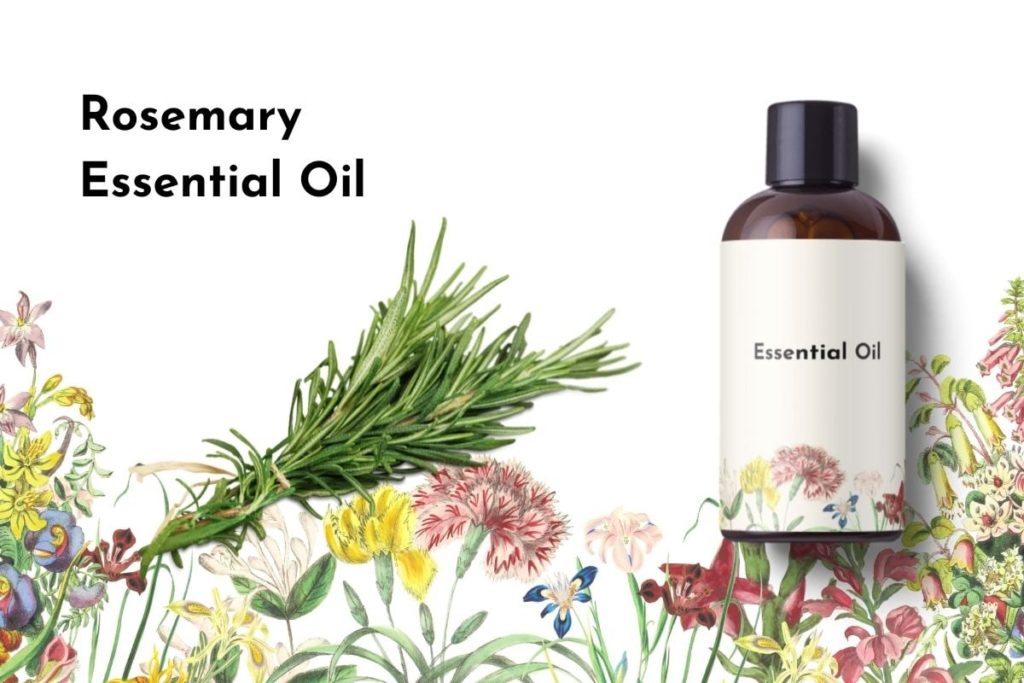
Rosemary oil is an essential oil that has been studied for its potential to help reduce the appearance of varicose veins. Rosemary oil is a natural, anti-inflammatory and anti-oxidant remedy that helps improve circulation and reduce swelling, which are both beneficial in treating varicose veins.
Research suggests that rosemary can be helpful in reducing inflammation, providing an analgesic effect, and strengthening the veins. The anti-inflammatory components of rosemary oil can help reduce the appearance of spider veins and varicose veins. Furthermore, its antispasmodic properties can relieve pain in the area and provide a feeling of relaxation.
3. Cypress Oil
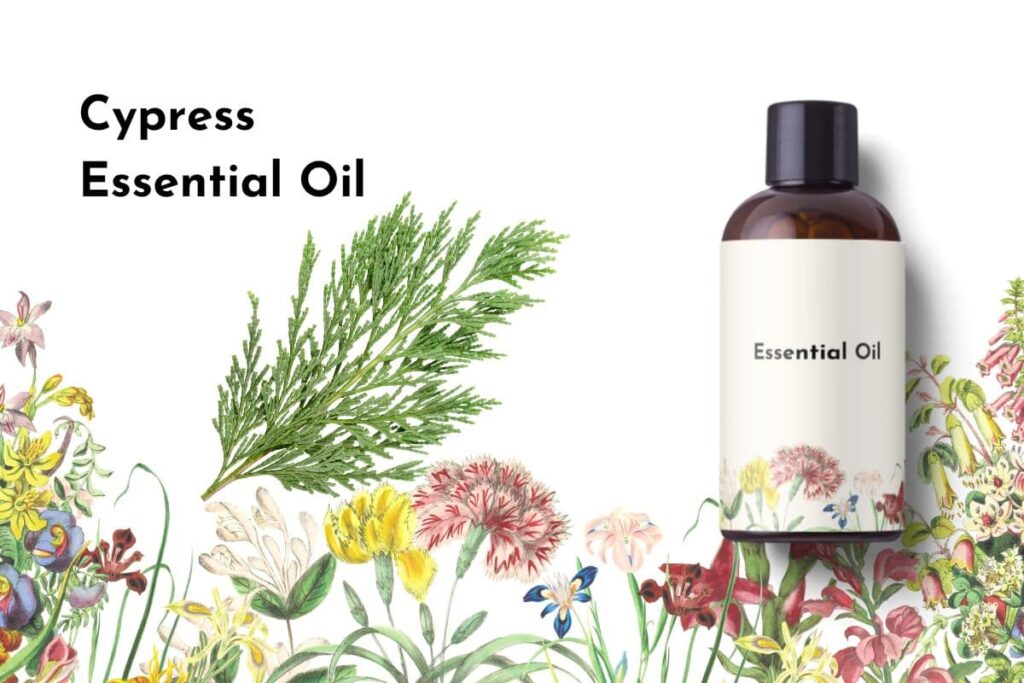
Cypress oil is an essential oil that has been used for centuries to help with circulatory problems, including varicose veins. It is thought to have antispasmodic, astringent, and vasoconstrictive properties that help improve circulation and reduce swelling associated with varicose veins.
Cypress oil may help to relax the walls of the veins and improve the flow of blood, which can help reduce the appearance of varicose veins. In addition, cypress oil is thought to be beneficial in reducing swelling and pain associated with varicose veins.
4. Lavender Oil
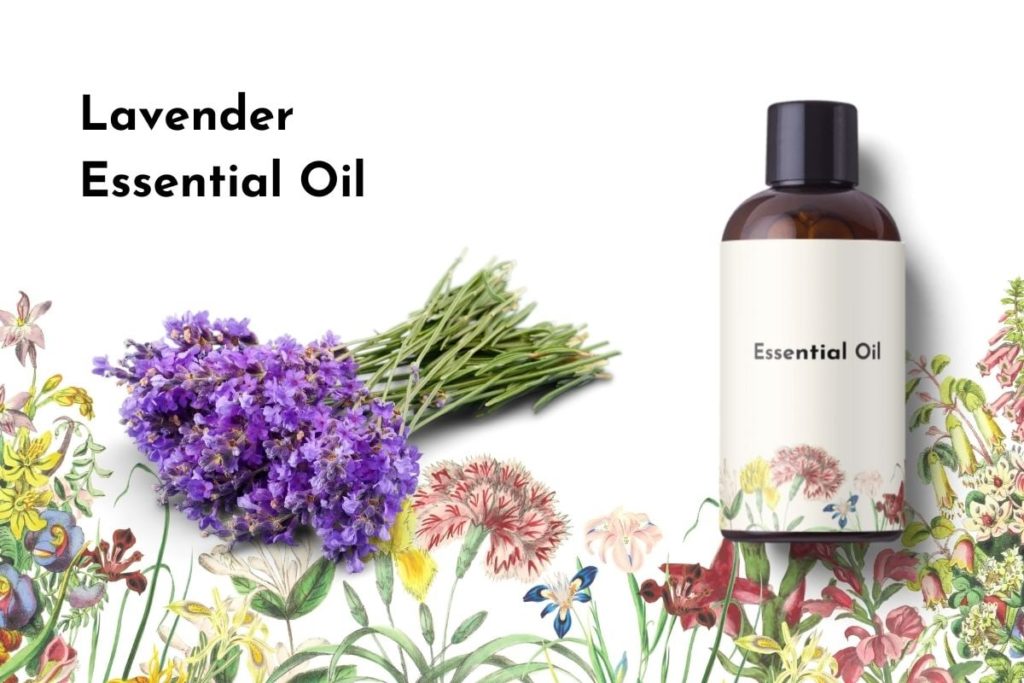
Lavender oil, a popular essential oil for various health-related applications, holds potential benefits when it comes to varicose veins.
This widely-used aromatic substance is extracted from the flowers of Lavandula angustifolia and has been known to contain numerous therapeutic properties that may help alleviate symptoms associated with varicose veins.
The application of lavender oil for this purpose can be attributed to its anti-inflammatory, analgesic, and relaxing effects on both the skin and underlying tissues.
- Anti-inflammatory: Reduces swelling and discomfort caused by inflammation around the affected veins
- Analgesic: Provides pain relief by numbing the area and reducing sensitivity
- Relaxing: Promotes blood flow through relaxation of muscles surrounding the veins
These effects are mainly achieved through topical application of diluted lavender oil directly onto the affected areas.
When massaged gently into the skin overlying varicose veins, it promotes circulation while simultaneously providing a soothing effect.
Lavender oil is an adaptogen that can help balance stress hormones, which may worsen vein dilation or cause additional inflammation.
While lavender oil can be helpful in managing symptoms of varicose veins, it should not be considered a replacement for medical treatment. Rather, it can complement existing interventions such as compression stockings or lifestyle modifications aimed at improving overall venous function.
5. Horse Chestnut Oil
Horse Chestnut Oil, derived from the seeds of Aesculus hippocastanum, is a popular natural remedy for varicose veins. The essential oil contains significant amounts of active compounds such as triterpenoid saponins, which are responsible for its numerous health benefits.
Studies have demonstrated that horse chestnut seed extract can alleviate symptoms associated with varicose veins by improving blood circulation and reducing inflammation in affected areas. Clinical research has shown promising results on the effectiveness of horse chestnut seed extract in treating varicose veins.
In a review of 5 different clinical studies, researchers evaluated the efficacy and safety of this essential oil compared to placebo or reference treatments in individuals suffering from chronic venous insufficiency – a condition commonly associated with varicose veins. The analysis revealed that horse chestnut seed extract significantly improved leg pain, swelling, and itching when compared to placebo groups. Additionally, it was found to be as effective as compression stockings – a standard treatment option for varicose veins.
The use of horse chestnut oil goes beyond varicose vein management. It has anti-inflammatory properties that inhibit enzymes involved in inflammation. Additionally, it has antioxidant characteristics that protect cells from free radical damage. These benefits result in improved vascular health and function when used as part of a comprehensive treatment plan for varicose veins.
6. Helichrysum Oil
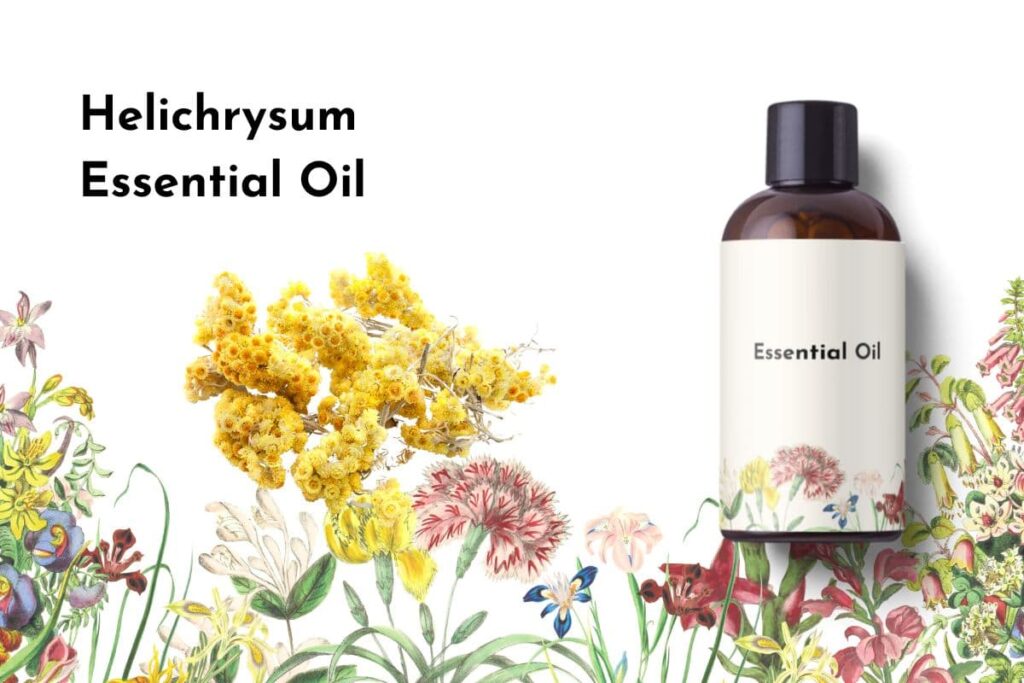
Helichrysum oil, extracted from the flowers of Helichrysum italicum plant, possesses powerful anti-inflammatory and antioxidant properties which make it a highly sought-after remedy for numerous ailments.
When applied topically or used in conjunction with other essential oils, it may provide relief from pain, swelling, and inflammation typically experienced by those suffering from varicose veins. Furthermore, research suggests that helichrysum oil promotes healthy circulation and aids in dissolving blood clots – two crucial factors in managing this vascular condition effectively.
The astonishing potency of helichrysum oil underscores its importance as a natural solution to combat varicose veins without resorting to invasive medical procedures or synthetic medications.
7. Grapeseed Oil
Grapeseed oil is derived from the pressed seeds of grapes and is known for its numerous health benefits, including treating and preventing varicose veins. It contains essential fatty acids that help promote healthy circulation, which can alleviate symptoms associated with this condition. Additionally, grapeseed oil helps strengthen and tone vein walls, reducing their propensity to become enlarged or distorted.
The high levels of antioxidants found in this oil are beneficial in relieving inflammation caused by poor blood flow to the legs and feet. Grapeseed oil also helps reduce skin irritations related to varicose veins and may even be used to reduce the appearance of spider veins.
When used as part of a comprehensive treatment plan for managing varicose veins, grapeseed oil can be highly effective in providing relief from symptoms such as itching, aching, heaviness, fatigue, swelling, and discoloration of the skin. Regular application over extended periods of time may even help eliminate or reduce the need for more invasive treatments such as laser therapy or medical procedures.
8. Yarrow Oil
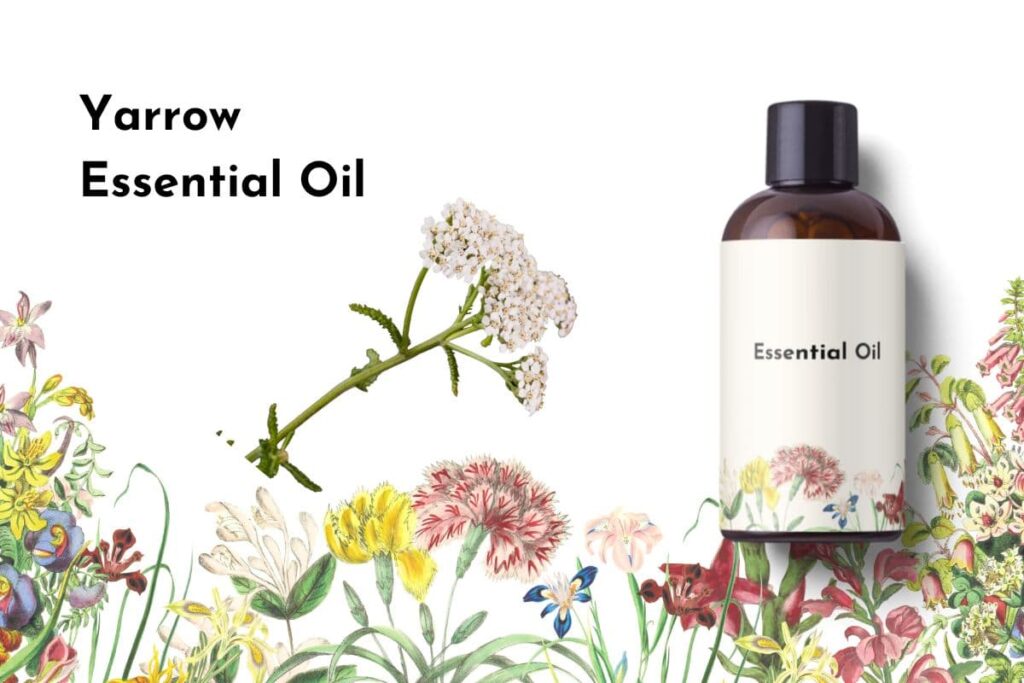
Yarrow oil, derived from Achillea millefolium plant, is known for its anti-inflammatory properties which can be beneficial in treating varicose veins. The use of this essential oil may assist in reducing inflammation and swelling associated with varicose veins as well as promote blood circulation. Additionally, yarrow oil possesses antispasmodic properties that have been shown to relax muscle tension around the affected area, further supporting the relief from pain or discomfort caused by these enlarged blood vessels.
One way to incorporate yarrow oil into an at-home treatment plan for varicose veins is through topical application diluted with a carrier oil such as coconut or almond oil. This mixture can then be gently massaged onto the skin surrounding the affected area daily for optimal results.
Utilizing this powerful yet gentle solution offers promising benefits not only for those suffering from varicose veins but also for individuals looking to improve their overall circulatory health. With continued research on the efficacy of essential oils like yarrow oil, more people will likely turn towards these natural remedies in search of relief and healing.
9. Lemongrass Oil
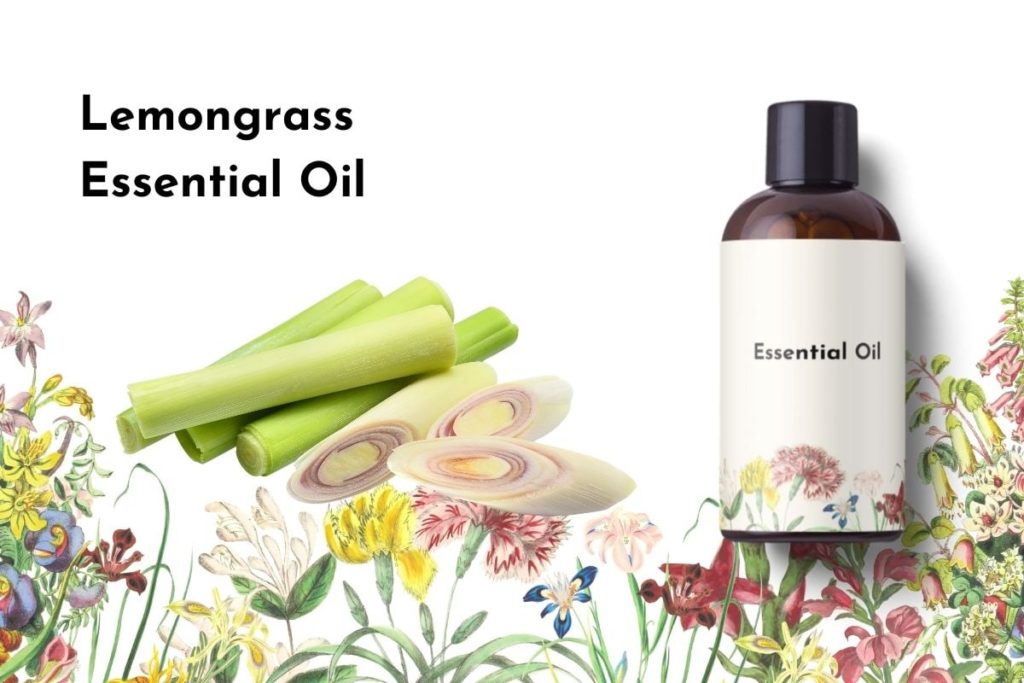
Lemongrass oil, derived from the leaves and stems of the Cymbopogon citratus plant, is known for its diverse therapeutic properties. This essential oil has been widely used in traditional medicine to treat various health conditions, including skin infections, digestive issues, and respiratory disorders.
Recent research suggests that lemongrass oil may also offer potential benefits for individuals suffering from varicose veins due to its anti-inflammatory, analgesic, and vasodilatory effects. The application of lemongrass oil on varicose veins can help alleviate symptoms associated with this condition.
The anti-inflammatory properties of this essential oil may reduce swelling and inflammation around the affected veins, thereby relieving pain and discomfort experienced by patients. Moreover, the vasodilatory effect of lemongrass oil could improve blood circulation within the area it is applied to by dilating blood vessels. As a result of better blood flow through the vein network’s enlarged diameter, there might be a reduction in strain placed on weakened or damaged valves typically found in varicose veins.
10. Chamomile Oil
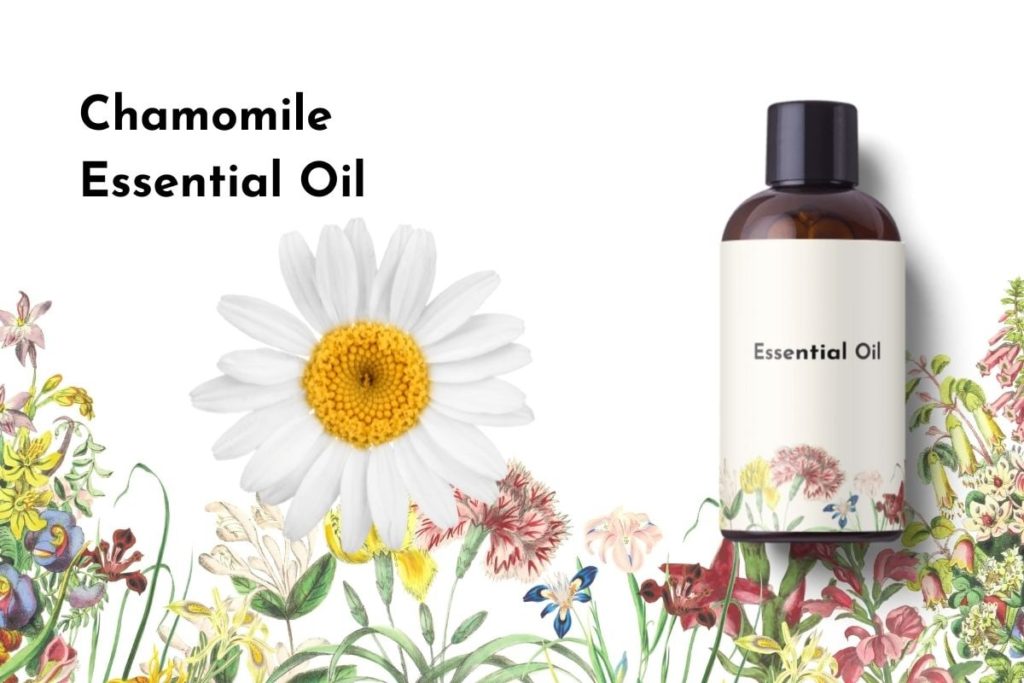
Like the gentle embrace of a warm summer breeze, chamomile oil has long been known to provide soothing relief and comfort for various ailments. One such ailment includes varicose veins – those twisted, enlarged blood vessels that often appear as blue or dark purple lines on the legs.
In recent years, essential oils have garnered significant attention in alternative medicine circles due to their potential therapeutic benefits, with chamomile oil being no exception. Chamomile oil is among the most popular essential oils used for treating varicose veins and spider veins.
This natural remedy boasts anti-inflammatory properties that may help reduce swelling and discomfort associated with these unsightly blood vessels. As an added bonus, it also possesses antispasmodic qualities which can alleviate muscle tension and cramps commonly experienced by those suffering from this condition.
By applying diluted chamomile oil topically or incorporating it into massages, individuals may find solace from their vein-related distress. Extensive research continues to unveil the numerous applications of essential oils like chamomile oil in promoting overall health and wellness.
11. Thyme Oil
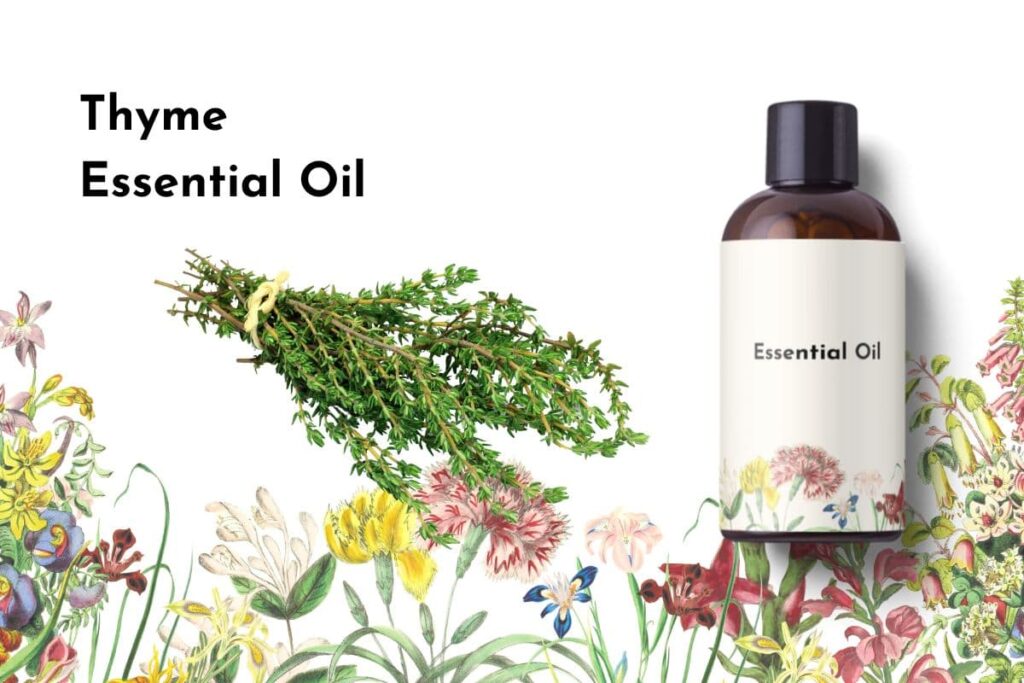
Thyme oil, a prominent member of the essential oils family, has been traditionally used for various medicinal purposes. As an essential oil derived from the Thymus vulgaris plant, it is known to possess multiple therapeutic properties such as antimicrobial, antispasmodic, and antioxidant effects.
Thyme oil has anti-inflammatory and circulatory-enhancing qualities that may help with varicose veins. The primary component, thymol, has been shown to promote nitric oxide release and relaxation of vascular smooth muscle cells, leading to vasodilatory activity on blood vessels. This helps to reduce venous pressure and alleviate symptoms such as pain, heaviness, and swelling.
12. Geranium Oil
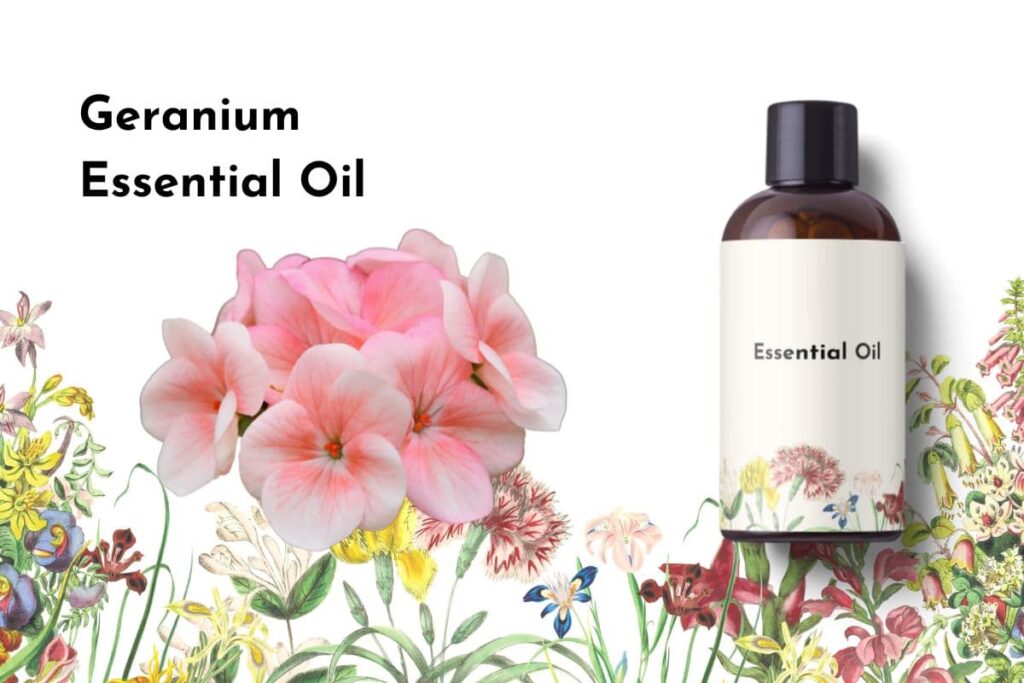
Geranium oil, derived from the Pelargonium graveolens plant, is one of the essential oils known for its potential benefits in managing varicose veins. The therapeutic properties of this essential oil are attributed to its primary constituents, including citronellol, geraniol, linalool, and menthone. These compounds possess anti-inflammatory, astringent, and soothing effects that contribute to their effectiveness in addressing various health concerns.
The application of geranium oil on areas affected by varicose veins may yield positive results due to several mechanisms. Firstly, it promotes blood circulation and relieves inflammation associated with swollen veins. Secondly, as an astringent agent, it helps tighten and tone the skin where varicose veins appear prominent. Lastly, the soothing qualities of geranium oil alleviate discomfort caused by vein enlargement and improve overall skin appearance.
Carrier Oils To Use For Varicose Veins
It is an undeniable truth that carrier oils play a crucial role in the effectiveness of essential oil treatments. These powerful yet gentle agents help dilute potent essential oils, making them safe and comfortable for topical application while enhancing their absorption into the skin. Without these remarkable carriers, one could hardly imagine obtaining optimal benefits from essential oils.
Amongst the vast array of available carrier oils, three stand out as particularly well-suited to support varicose vein treatment:
Olive Oil
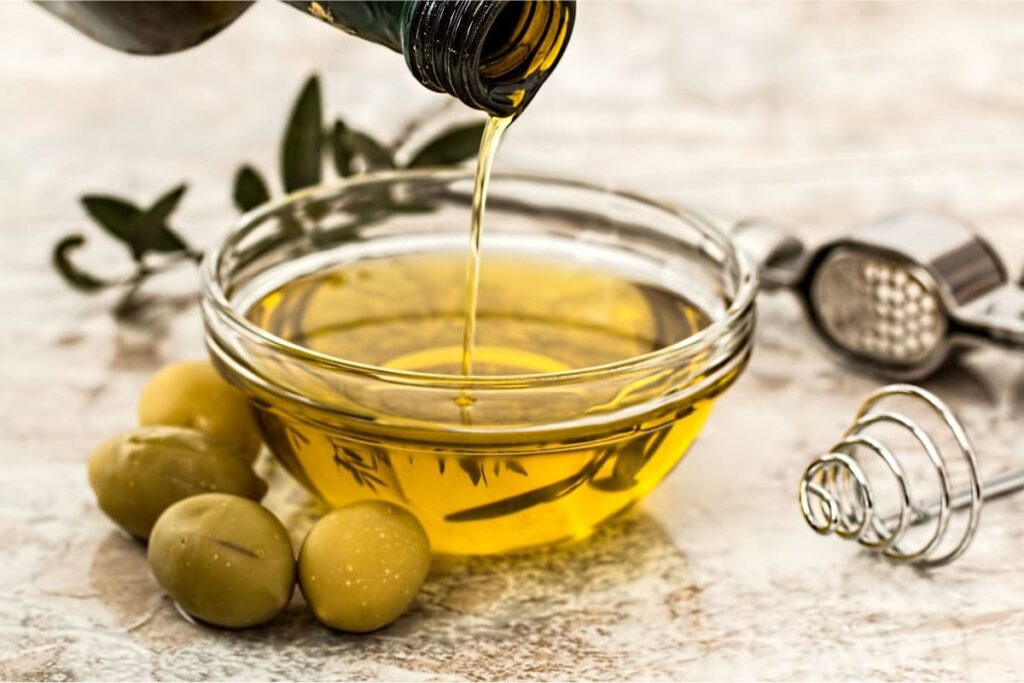
Obtained from the fruit of Olea europaea, this multipurpose oil has been used since ancient times in various applications such as cooking, medicine, and skincare.
Its high content of monounsaturated fatty acids and antioxidants contributes to its reputed health benefits: reducing inflammation, improving blood circulation, and promoting skin elasticity.
The application of olive oil with essential oils can potentially alleviate symptoms associated with varicose veins.
For instance, massaging diluted cypress or lavender essential oils into the affected areas may help reduce swelling and discomfort.
The combination enhances absorption through the skin while providing additional nourishment that supports vascular health.
Moreover, regular use of these blends might also prevent further progression of venous insufficiency by strengthening vein walls and minimizing oxidative stress.
Sweet Almond Oil
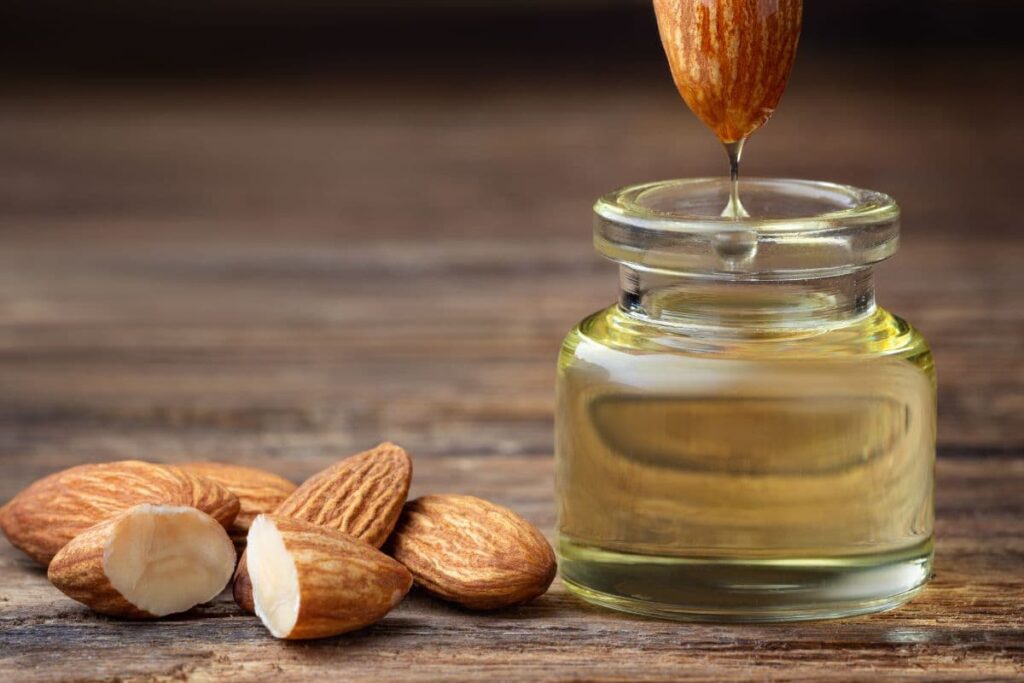
Sweet almond oil, derived from the kernels of Prunus dulcis, has been widely used in traditional medicine and cosmetology due to its various health benefits. This natural product is rich in oleic acid, linoleic acid, vitamins A and E, as well as other essential nutrients that contribute to improved skin health.
Sweet almond oil has anti-inflammatory and antioxidant properties, making it a useful addition to treatments for varicose veins. It may help reduce pain, swelling, and discomfort associated with the condition by reducing inflammation within the affected blood vessels.
Sweet almond oil also has emollient properties that can help moisturize and soften the skin around varicose veins and improve elasticity. Essential oils like geranium, cypress, or lavender are often used in combination with sweet almond oil as a carrier to enhance their effectiveness in treating varicose veins.
Jojoba Oil
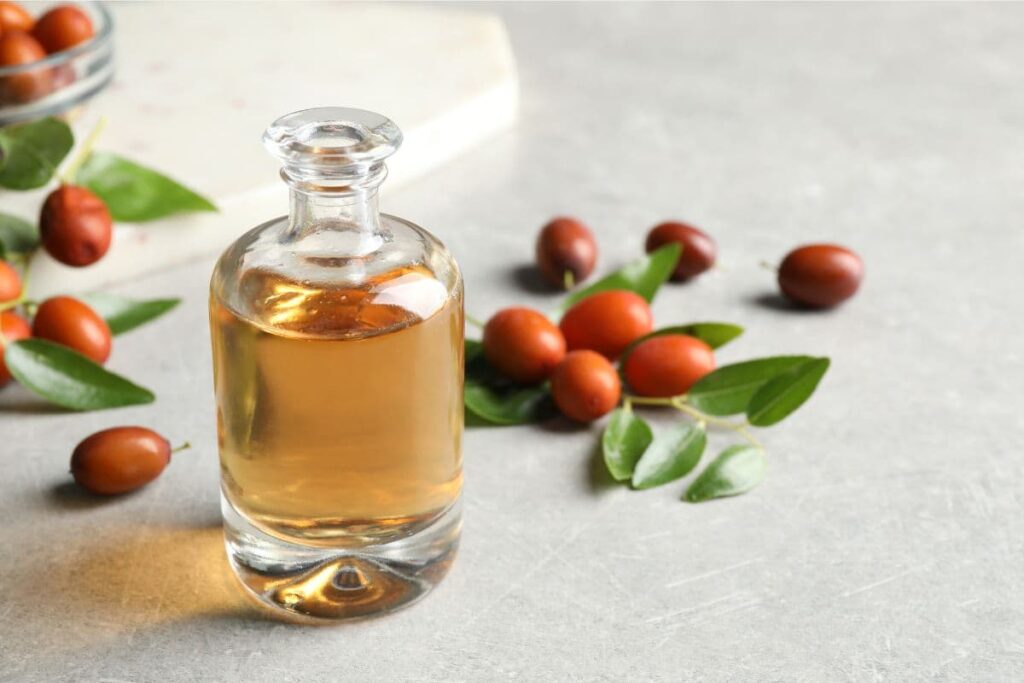
Jojoba oil is derived from the seeds of the Simmondsia chinensis plant.
This essential oil has been widely used in various cosmetic and skincare products due to its numerous benefits for skin health, including moisturizing properties, anti-inflammatory effects, and wound healing capabilities.
Of particular interest is its potential efficacy in reducing symptoms associated with varicose veins.
The use of jojoba oil as a carrier oil in combination with other essential oils may provide relief for those suffering from varicose veins. Several factors contribute to this:
- Jojoba oil closely resembles human sebum, allowing it to be easily absorbed by the skin.
- Its high content of fatty acids promotes healthy blood circulation.
- The anti-inflammatory properties found within jojoba oil can help reduce swelling and pain caused by varicose veins.
- It serves as an excellent carrier oil when mixed with other potentially beneficial essential oils such as lavender or cypress.
How To Use Essential Oils For Varicose Veins
In light of the potential benefits offered by jojoba oil, it is worthwhile to explore how essential oils can be used in the management of varicose veins. As these swollen and twisted veins often result from venous insufficiency, individuals suffering from this condition may seek alternative or complementary therapies alongside conventional medical treatments. Utilizing essential oils could prove beneficial in alleviating symptoms and improving overall vascular health.
One popular method for applying essential oils involves creating a blend with a carrier oil before massaging onto the affected area. This technique allows for better absorption while minimizing skin irritation. Additionally, some individuals might find relief by incorporating essential oils into their daily routines through methods such as aromatherapy diffusers or adding them to warm baths. The table below provides examples of various essential oils that have been suggested for managing varicose veins:
| Essential Oil | Potential Benefits | Suggested Carrier Oil |
|---|---|---|
| Cypress | Improves circulation | Sweet almond oil |
| Helichrysum | Reduces inflammation & swelling | Jojoba oil |
| Lavender | Relieves pain & soothes skin | Grapeseed oil |
It is important to note that using essential oils alone may not provide complete relief from varicose vein discomfort or address underlying causes. Combining these natural remedies with other self-care measures, such as wearing compression stockings and elevating legs when possible, can further enhance treatment effectiveness. Incorporating lifestyle changes like regular exercise and maintaining a healthy weight also contribute positively towards managing venous insufficiency and preventing future occurrences.
When To Seek Professional Help
The use of essential oils is a common home remedy for varicose veins, as it can help relieve symptoms and improve their appearance. However, it is important to note that seeking professional help may be necessary in certain situations.
One such instance is when poor circulation occurs alongside varicose veins. Poor circulation may lead to complications like venous insufficiency or deep vein thrombosis (DVT), which require medical intervention.
Another indication that it might be time to seek expert assistance is the presence of blood clots in conjunction with varicose veins. Blood clots can form due to sluggish blood flow within the affected veins, increasing the risk of DVT – a potentially life-threatening condition if left untreated. Expert evaluation and management are crucial in detecting and addressing any underlying issues contributing to clot formation, as well as preventing severe complications from arising.
Frequently Asked Questions
Are There Any Potential Side Effects Or Risks Associated With Using Essential Oils For Varicose Veins?
When using essential oils for varicose vein treatment, it is important to use them correctly to avoid potential adverse reactions.
Individuals seeking relief from venous discomfort should consider potential concerns such as allergic reactions, skin irritation, photosensitivity, and interactions with medication.
Furthermore, relying solely on essential oil applications without addressing underlying causes or seeking professional medical advice may result in inadequate treatment of the condition.
How Long Does It Typically Take To See Results From Using Essential Oils For Varicose Veins, And Will The Results Be Permanent?
The time it takes to see results from varicose vein treatment can vary based on factors such as condition severity and application consistency.
While some individuals might notice improvements within a few weeks, others may require months of consistent use before significant changes become apparent.
As for permanency, it is important to note that no treatment can guarantee complete eradication or prevention of future occurrences, particularly due to underlying causes such as genetics, age, and lifestyle habits.
Therefore, it is crucial to maintain a healthy lifestyle and consult with a healthcare professional regarding appropriate management strategies for long-term success in addressing this condition.
Can Essential Oils Help Prevent The Development Of Varicose Veins In Individuals Who May Be At Risk, Or Do They Only Provide Relief For Existing Varicose Veins?
The prevention of varicose veins development in at-risk individuals is a topic of interest within the medical and alternative therapy communities.
While certain lifestyle modifications, such as regular exercise, weight management, and avoiding prolonged standing or sitting, have been shown to reduce the risk of developing varicose veins, the efficacy of essential oils for this purpose has not been conclusively established through scientific research.
Some studies suggest that particular essential oils may possess properties that could contribute to improved blood circulation and reduced inflammation when applied topically; however, further investigation is required to determine their effectiveness in preventing the onset of varicose veins.
Final Words
Essential oils can provide relief and aid in the management of varicose veins. However, it is crucial to be aware of potential side effects and interactions with other treatments when using these natural remedies. Individuals interested in exploring alternative options should consult a healthcare professional for personalized advice on incorporating essential oils into their treatment regimen.

